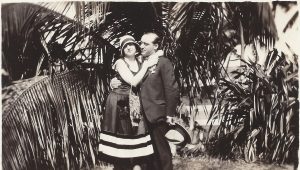
A woman with an attitude.
When my grandmother died, the family dutifully assembled in Chicago for her funeral, but we were none too happy about paying our respects. Sure, we loved her, but as the rabbi rose to deliver the eulogy, we did not relish listening to half an hour of praise and platitudes about a woman who was, to put it charitably, hard to get along with.
We did not relish listening to praise and platitudes about a woman who was, to put it charitably, hard to get along with.
The rabbi, it turned out, did not intend to mince words. The stories he told did not sugar-coat Grandma’s critical and domineering nature, her tendency to complain, her parsimony, her constant battles with my grandfather into which she never hesitated to drag the rest of us. Remember, when their apartment went condo, how she nagged at him incessantly until he finally gave in and bought it just to gain a little peace? (It turned out to be a wise financial move, but still.) Or how they threatened to divorce—after 49 years of marriage? When we’d call her, her first words were invariably to complain about how rarely we called. And remember how, in her seventies, she walked four extra blocks in a snowstorm to the Jewel T Market to save a few pennies on toilet paper?

With my grandfather in earlier, happier years. Wish I knew the story behind this one!
But all the stories had a twist. Every criticism, said the rabbi, showed her love for us by encouraging us to do better. If she was bossy, it was because she only wanted what was best for us. Grandma’s stinginess was her way of making sure we never had to struggle for lack of money as she had, raising a family during the Great Depression. By eulogy’s end, the rabbi had us laughing at Grandma’s foibles, crying because now we truly missed her, and guiltily wondering how we had failed to see the love and devotion at the core of her difficult nature.
When the service was over, the grandchildren converged to thank the rabbi for evoking Grandma’s memory so vividly and to ask how long he’d known her. “Oh, I never met your grandmother,” he replied. “Your mother and your uncle told me all I needed to know.”
He may not have known Grandma personally, but he knew her pretty well.
John Unger Zussman is a creative and corporate storyteller and a co-founder of Retrospect.



Grace sounds like a character, John, but the rabbi deserves high praise for turning true observations on their heads and letting you see your grandmother in a different, more positive light. That was a great gift to you all. Rather like my friend Emily saying to me right after my mother died that if she hadn’t instilled a love of the fine arts in me, Em and I wouldn’t have become friends. It’s all in the way you spin the story.
Loved your portrait of your grandmother. That was a different generation. Living through the Depression left its mark. One of my grandmothers was strong and tough, but those traits enabled her family to survive.
I’m trying to imagine a cage match between my grandmother and yours. So many similarities–especially about the first thing she said on the phone! Thanks for sharing this story about her. The two bubbes were birds of a feather! One additional note: my grandmother had us call her Grandma Glass, using her last name. Even people who had known her for years always called her Mrs. Glass. It was an odd formality, but kind of typical when you think about it.
John, I love the way this shows the complexity of your grandmother and feelings toward her. Many in my family did not like my paternal grandmother but it was she who taught me how to care for the very fair skin that I inherited from her, and a lot of small things that added up. Thanks for a great story.